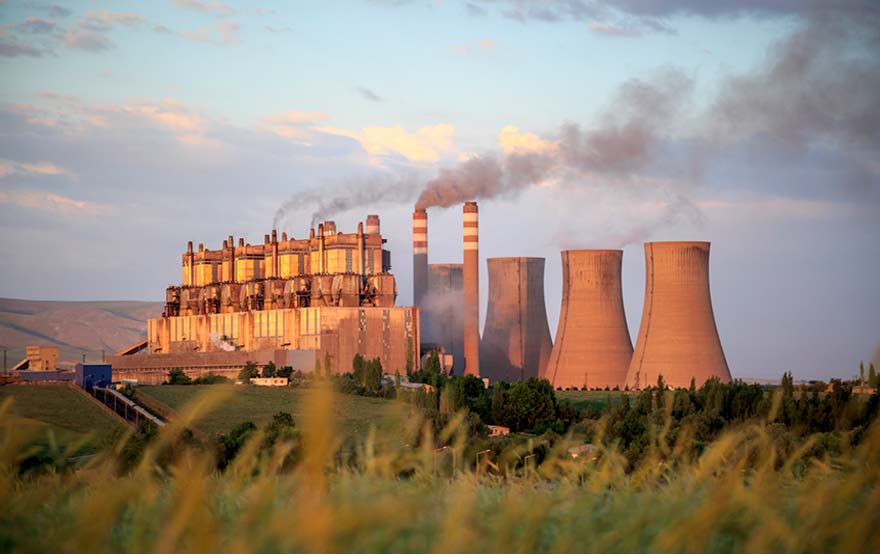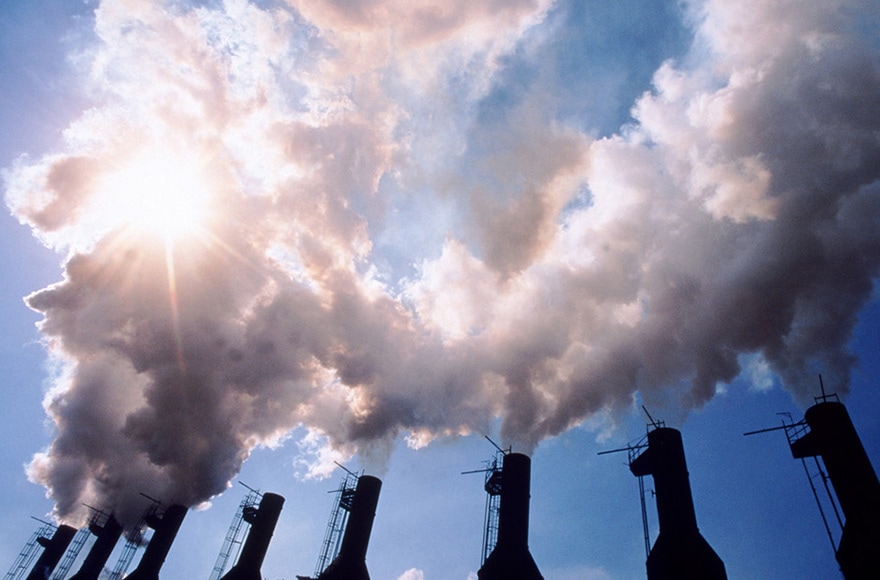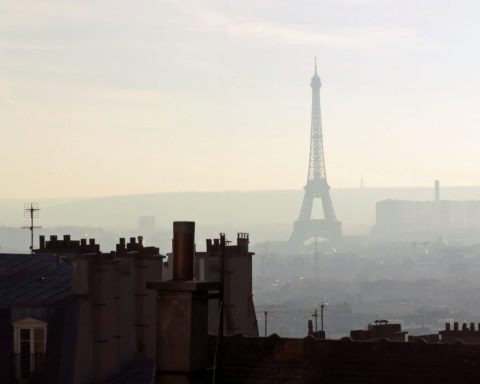Turkey could become Europe's new climate bomb, with the help of companies partly owned by the French state, including EDF and Engie (formerly GDF-Suez). The French energy company Engie, 33% owned by the State, continues to invest heavily in coal-fired power plants outside France. Engie already owns 30 of them on all continents and plans to build new ones, notably in Turkey, Mongolia, Brazil and Chile! The Climate Action Network France, the Climate Action Network Europe, together with Friends of the Earth France and the Turkish NGO Iskenderun Environmental Protection Association, are publishing a dossier on the challenges of coal development in Turkey by the company Engie. Explanations.
À A few weeks before the 21st UN Climate Conference /COP21, two companies in which the French State is a shareholder, EDF and Engie (ex-GDF-Suez), are continuing their polluting activities around the world.
In Turkey, Engie plans to build the Ada Yumurtalik power plant (1230MW). This power plant would come in addition to a plan to develop coal in the region, which is particularly climatic and harmful to the population. 500,000 people are already affected by the effects of coal in this area.
In May, a report published by Friends of the Earth and Oxfam revealed that these two companies owned 46 coal-fired power plants worldwide, causing social impacts, environmental and climatic disasters (1).
A large number of international, French and Turkish NGOs sent today, Wednesday 7 October, a letter to François Hollande asking him to take action to get Engie out of the coal sector in Turkey. Indeed, despite the decision-making role of the State in these two companies, and the fact that they are official sponsors of COP21, EDF and Engie are not reducing their activities in the coal sector. Quite the contrary: Engie plans to open new power plants in several countries!
For Célia Gautier, from the Climate Action Network France, ". The support of two French companies, in which the State is the main shareholder, for the development of coal in Turkey shows that France is still far from being exemplary before COP21. To prevent Turkey from becoming Europe's new climate bomb by developing coal, the government must act in Engie's decision-making bodies to demand a rapid coal exit plan, announced before COP21. »
What the French government and Engie need to do
For Friends of the Earth France and the Climate Action Network France, Engie should quickly :
- Immediately terminate the Ada Yumurtalik project in Turkey. The Ada Yumurtalik coal-fired power plant project would exacerbate the already negative impacts of coal on the health and livelihoods of 500,000 people in the region.
- Publish, by COP21, a plan for a rapid exit from coal by 2020, without resorting to other false solutions, nuclear, or large dams, and taking into account the reconversion of workers in the sector.
The French government, for its part, must assume its responsibilities as a shareholder and :
- Oppose Ada Yumurtalik's project with the other shareholders and in the company's decision making bodies.
- To speak out in favour of a rapid exit from coal by Engie by 2020 by making its voice heard among the other shareholders and in the company's decision-making bodies.

Photo ©Kerem Yucel/CAN Europe 2015
These companies that are smoking us out...
Coal is the fossil fuel that emits the most greenhouse gases. Directly blamed by scientists for its responsibility in climate change, Anthrax also has a devastating impact on people's health, the degradation of their environment and thus their livelihoods, and the working conditions of workers in the sector. Yet EDF and Engie, two companies in which the State is a shareholder, continue to export their polluting activities in Europe and around the world.
Engie: 30 coal-fired power plants in the world... and more to come?
EDF and Engie (formerly GDF Suez) have 46 power plants worldwide that emit around 151 million tonnes of CO2 per year, equivalent to half of France's emissions from energy use.
Engie has 30 coal-fired power plants on all continents, which emit nearly 81 million tonnes of CO2, equivalent to the emissions of the coal industry. the energy of a country like the Philippines.
Not only has Engie (like EDF) still not announced its exit from coal, but the company is also preparing to expand its fleet of coal-fired power plants! It plans to open the Ada Yumurtalik plant in Turkey (1,320 MW), the Ulaanbaatar plant in Mongolia (415 MW), the Pampa Sul plant in Brazil (340 MW), and extend the Mejillones plant in Chile (315 MW).
"State issues"
On the eve of COP21, France is far from being exemplary. The coal investments of Engie and EDF reveal the hypocrisy of the French government. Indeed, the French State holds 84.5 % of EDF's shares and 33 % of Engie's shares. If the French government wants to send a positive signal in view of COP21, it must use its influence on these two companies to initiate their exit from coal.

Photo ©Kerem Yucel/CAN Europe 2015
Ada Yumurtalik coal-fired power plant, a new climate bomb
Located in Iskenderun Bay in southern Turkey, the Ada Yumurtalik coal-fired power plant project will have a capacity of 1320 MW. The project is being carried out by a subsidiary of Engie - Suez Enerji Uretim S.A. Engie holds 90 % of the shares of this company (equivalent to 583 million euros). Engie has a local partner for this: the Turkish company MimagSanko.
Turkey's coal renaissance: 75 new power plants by 2023?
Engie seeks to take advantage of the Turkish government's plans to massively increase coal-based electricity generation in the country. The country already has 21 coal-fired power plants in operation.
According to Turkey's energy plans for 2023, no less than 75 new coal-fired power stations are planned. If these plans are implemented, Turkey's annual CO2 emissions could reach 200 million tonnes, compared to 21.5 million tonnes in 1990. (2). And the plants to be built will emit for 40 years or more!
This risk of "revival" of coal in Turkey is reflected in the country's national contribution pledged for COP21. The Turkish government is aiming for a
doubling of its greenhouse gas emissions between 2012 and 2030, whereas the aim should instead be to reduce them. These plans are totally inconsistent with the the need, according to scientists, to leave 80% of known coal reserves in the ground to limit global warming to less than 2°C (3).
These developments reveal Turkey's lack of ambition on climate, despite its role as president of the G20 in 2015.
With his coal, Engie adds powder to this climate bomb. The technology planned for this power plant (pulverized coal with supercritical boiler) does not even correspond to the best available technology in terms of partial reduction of CO2 emissions.
On the other hand, the project runs counter to Turkey's energy independence since most of the coal used for the boiler would be imported. However, the region has a strong potential for the development of renewable energy from solar and wind power. But the local authorities have still not carried out a serious assessment of this potential.
500,000 people affected by coal in this region of Turkey
Iskenderun Bay and its inhabitants are particularly threatened by Turkey's coal development. 29 new projects are planned, including the Engie project, in addition to the three plants already in operation.
This development is a threat to the region, which has the most diverse terrestrial and marine ecosystems in the country. The living conditions of the local population are thus particularly affected by the development of coal, since the majority of the population earns its livelihood from fishing, market gardening, fishing for food, and the production of oil and gas. production of fruit, olives and olive oil.
20 % of lemon production in Turkey comes from this area. It is estimated that the living conditions of 500,000 people are directly affected by coal development projects.
Health Impacts
Emissions from coal-fired power plants contribute to dramatic health impacts. According to HEAL, in Turkey, emissions from existing coal-fired power plants cause 2,876 premature deaths, 3,823 new cases of chronic bronchitis, 4,311 hospital admissions and 637,643 lost working days. per annum (4). These health impacts have an impact on the country's economy, as the economic costs are estimated at between 2.9 and 3.6 billion euros per year. These costs indirect costs are not paid by companies but by society, via public budgets.
The opening of new power stations in Turkey, and in particular that of Ada Yumurtalik, would add to the already dramatic toll coal is taking on the health of the Turkish people.
The false green image of ENGINEERING
Climate: the double game
Since its name change in April 2015, GDF-Suez, now Engie, has had a new face. At the Annual General Meeting of Shareholders in April 2015, the company unveiled a new strategy based on three key areas: the digitalization of energy, the decentralization of energy management and the decarbonization of the energy mix. However, opening a massive coal-fired power plant like the one at Ada Yumurtalik does not meet the challenge of giving citizens control over their energy, as renewable energies can do. Using the most polluting fossil fuels also runs counter to the need to decarbonise the energy mix. In Turkey, Engie is also planning to open the Sinop nuclear power plant (5), another destructive project that will help lock the country into a risky, costly and unsustainable energy trajectory.
Engie's good environmental resolutions would therefore only be a facade, which the company's multiple attempts to communicate in view of COP21 aim to consolidate. Engie is thus one of the official sponsors of the event. At the same time, the company is a founding member of the "COP21 Solutions" initiative, a showcase for "solutions" to combat climate change. While the company will undoubtedly be presenting its investments in energy and climate change solutions, it will also be presenting the
In the future, however, it is likely to keep its energy production from fossil fuels, large dams or nuclear power under wraps.
However, this represents the majority of the company's activities (95 % of the installed capacity per 100 %) against 5 % for renewable energies (excluding hydraulics (6)).
In France and Turkey, civil society mobilised
In Turkey, a large part of the population of Iskenderun Bay is opposed to the coal development plan and the Engie power plant. Since the mid-1990s, local organisations have been actively fighting for their rights to live in a healthy environment. In particular, these organisations have initiated legal appeals against the permits issued to the power plants. Of the thirteen appeals already underway, three have resulted in the rejection of the projects. Two projects were effectively cancelled. One has been launched, going against the judicial decision and violating the rights of citizens. There are many grey areas in Turkish legislation. Far from being on the side of the people, it facilitates the activities of companies using fossil fuels, in addition to the many public subsidies that are granted to the latter.
(3) For example: "The geographical distribution of fossil fuels unused when limiting global warming to 2°C, Christophe McGlade, Paul Ekins, Nature, 517, 187-190 (Jan. 2015).
"The unpaid health bill: How coal power plants
(4) "The unpaid health bill: How coal power plants in Turkey make us sick", HEAL - Health and Environment Alliance, May 2014
(5) http://www.todayszaman.com/business_report-sinop-nuke-plant-to-cost-163-bln_390885.html
Sources :
- Simon Coquillaud, Climate Action Network France
- "The unpaid health bill: How coal power plants in Turkey make us sick", HEAL - Health and Environment Alliance, May 2014












